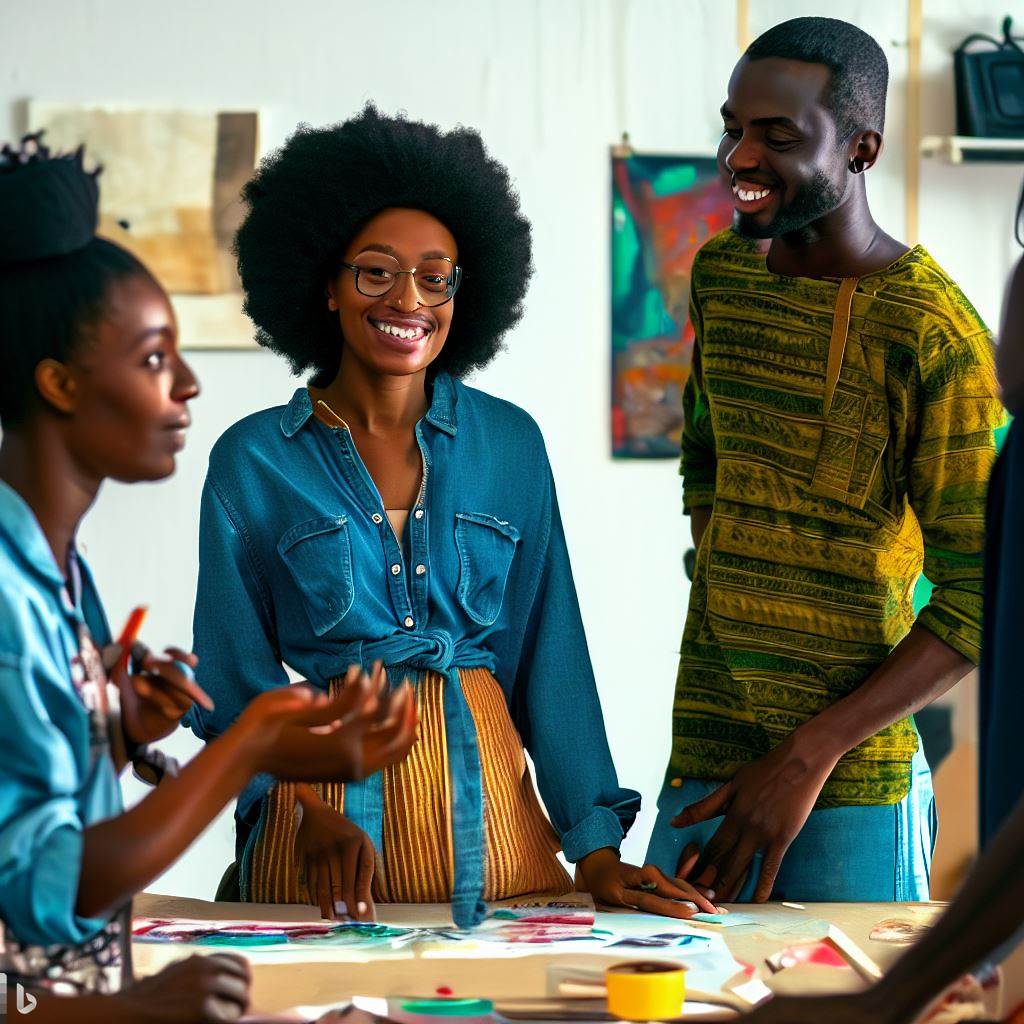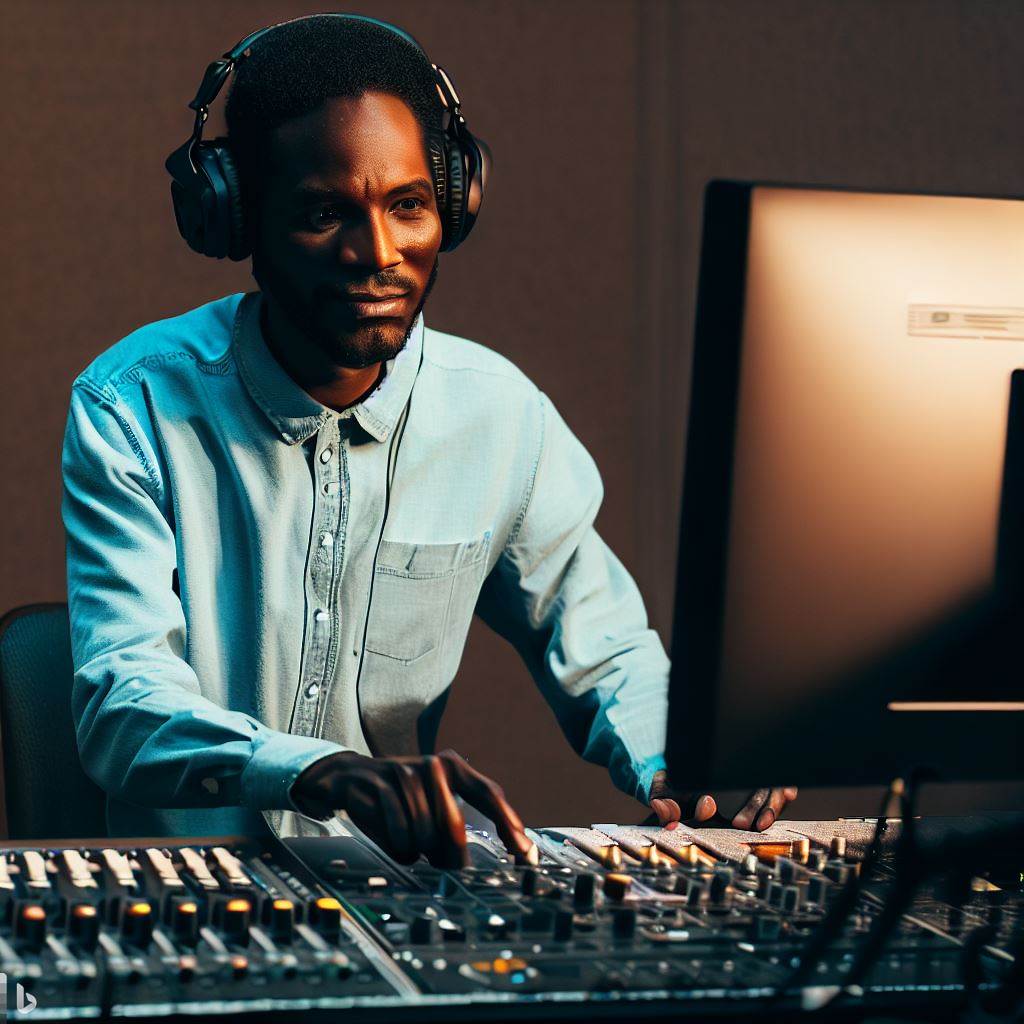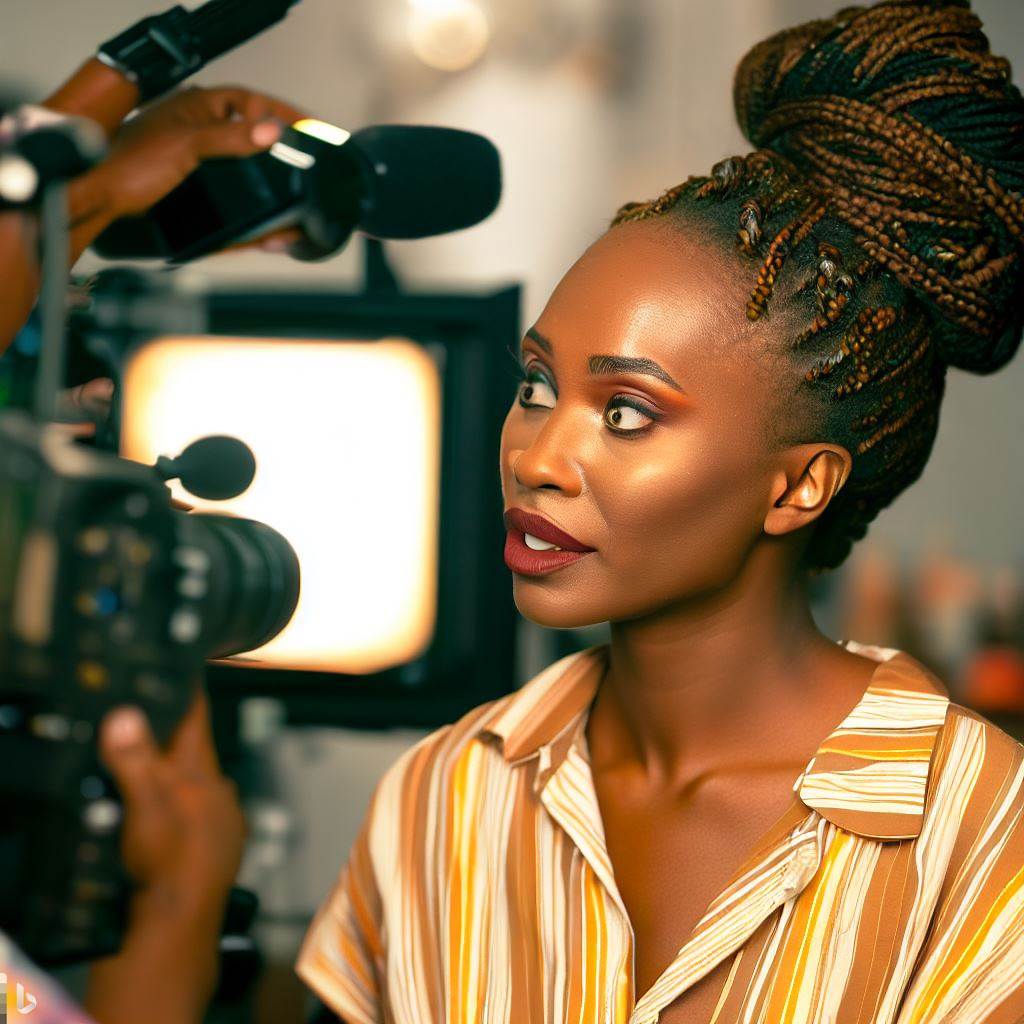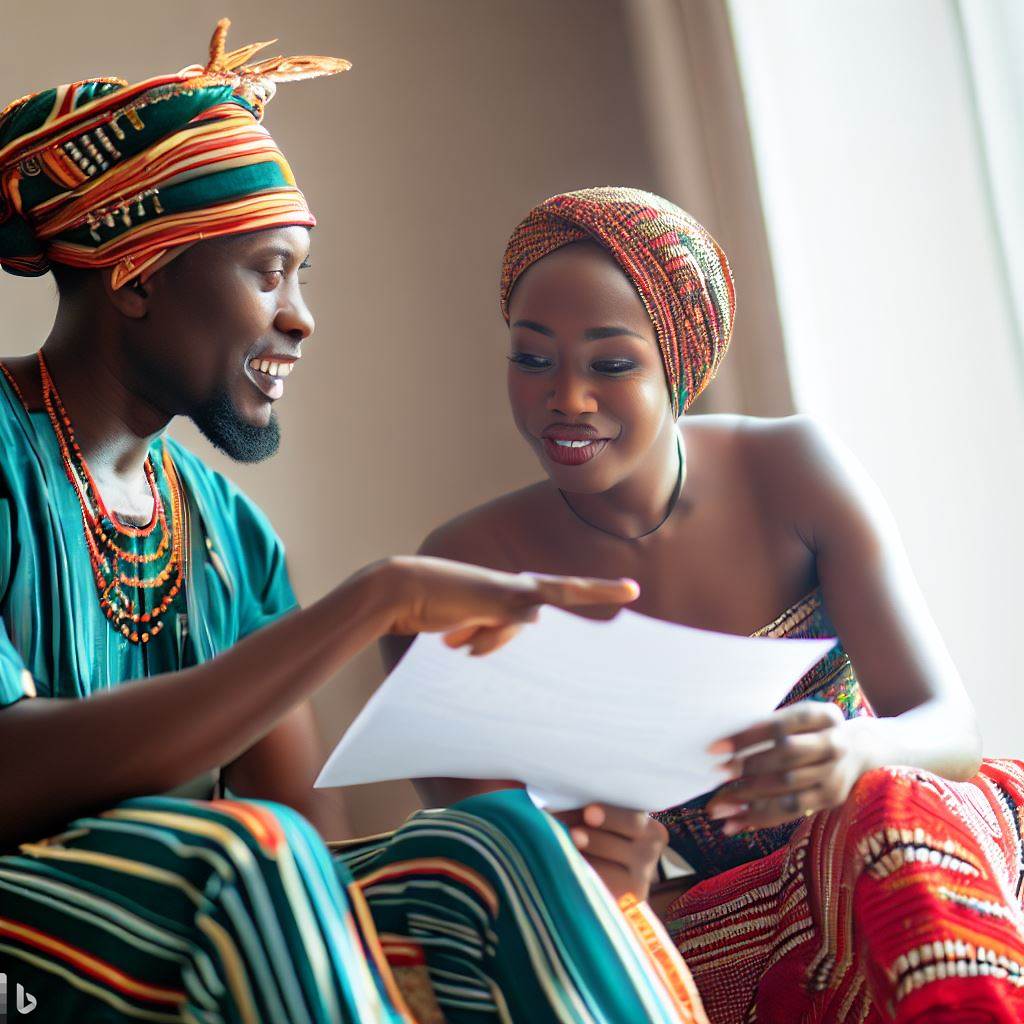Introduction
The Nigerian animation industry has been steadily growing in recent years, with a focus on creating unique and culturally relevant content.
Cultural representation in animation plays a vital role in preserving Nigeria’s rich heritage and promoting diversity.
The Nigerian animation industry has seen significant growth in recent years, thanks to a new wave of talented animators and studios.
With the emergence of platforms like YouTube and Netflix, local animators are now able to reach a wider audience both in Nigeria and internationally.
Cultural representation in animation is essential as it allows Nigerians to see themselves and their stories reflected on screen.
By showcasing the country’s diverse cultures, traditions, and folklore, animation helps to preserve and celebrate Nigeria’s rich heritage.
Moreover, cultural representation in animation plays a crucial role in promoting diversity and inclusivity.
It allows for the recognition and appreciation of different ethnic groups and their contributions to Nigerian society.
This representation not only promotes tolerance and understanding among Nigerians but also helps to combat stereotypes and misconceptions.
Furthermore, cultural representation in animation can have a positive impact on the younger generation.
By portraying Nigerian culture in a positive light, animation can instill a sense of pride and identity in young Nigerians. It can also inspire them to learn more about their heritage and traditional values.
Basically, the Nigerian animation industry is making great strides in promoting cultural representation.
By showcasing Nigeria’s diverse cultures and traditions, animation plays a significant role in preserving the country’s heritage, promoting diversity, and inspiring the younger generation.
The Need for Cultural Representation
Significance of representing Nigerian culture in animation
- Cultural representation in Nigerian animation plays a crucial role in preserving and celebrating the country’s rich heritage.
- It allows audiences, especially the younger generation, to connect with their roots and appreciate their cultural identity.
- By showcasing Nigerian culture through animation, it helps to counteract the dominance of Western narratives in media.
- It provides a platform for local artists and storytellers to showcase their talent and contribute to the growth of the animation industry.
- Nigerian animation with cultural representation can contribute to the country’s economy by attracting tourism and international collaboration.
Impact on identity formation and preserving cultural heritage
- Representation of Nigerian culture in animation fosters a sense of pride and belonging among Nigerians, both at home and in the diaspora.
- It helps individuals, especially children, develop a positive self-image and a strong cultural identity.
- Preserving cultural heritage through animation ensures that the traditions, customs, and values of Nigeria are passed down to future generations.
- It helps to bridge the generational gap and encourages dialogue between older and younger Nigerians about their cultural heritage.
- Cultural representation in animation also serves as a means of cultural diplomacy, promoting Nigeria’s unique identity and fostering cross-cultural understanding.
Representation as a tool for challenging stereotypes and promoting inclusivity
- Nigerian animation can challenge stereotypes by breaking away from mainstream media’s narrow and often inaccurate portrayals of African cultures.
- It allows for a more nuanced and authentic representation of Nigeria, showcasing its diversity and countering one-dimensional stereotypes.
- By featuring diverse characters and stories, cultural representation in animation promotes inclusivity and representation for marginalized groups.
- It gives a voice to underrepresented communities, such as minority ethnic groups, women, and people with disabilities.
- Additionally, animation with cultural representation can inspire young Nigerians who may otherwise feel excluded or invisible in mainstream media.
In essence, cultural representation in Nigerian animation is essential for preserving heritage, shaping identity, challenging stereotypes, and promoting inclusivity.
By showcasing the richness and diversity of Nigerian culture, animation can play a significant role in shaping a positive and vibrant national narrative.
Read: A Day in the Life of a Nigerian Journalist
Challenges Faced by Nigerian Animation Industry
When it comes to cultural representation in Nigerian animation, there are several challenges that the industry faces.
These challenges include:
- Limited resources and funding: The Nigerian animation industry often struggles due to the lack of financial support and limited resources available.
- Lack of infrastructure and technical expertise: Many Nigerian animators face difficulties in accessing advanced technology and often lack the necessary technical skills.
- High competition from foreign animations: Nigerian animations must compete with popular and well-established foreign animations, which can be a significant challenge.
Despite these challenges, it is crucial for the Nigerian animation industry to overcome them in order to achieve cultural representation.
Here’s why:
- Promoting Nigerian culture: By overcoming these challenges, the animation industry can represent Nigerian culture and showcase its diversity and richness.
- Preserving heritage: Through cultural representation, the industry can help preserve and promote Nigerian traditions, myths, and folklore.
- Empowering local talent: Overcoming challenges can provide opportunities for local animators to showcase their skills and talent on a global platform.
- Creating job opportunities: A thriving animation industry can create employment opportunities for individuals with creative abilities and technical expertise.
- Inspiring future generations: Cultural representation in animation can inspire young Nigerians to embrace their heritage and encourage them to explore creative fields.
Despite the importance of overcoming these challenges, it is easier said than done.
However, there are steps that can be taken to address these issues:
- Government support: The Nigerian government can allocate funds and resources to support the animation industry through grants and subsidies.
- Investment in infrastructure: Developing advanced animation studios and providing access to the latest technology can help nurture technical expertise.
- Educational programs: Offering training and courses in animation can bridge the gap in technical skills and enhance the capabilities of animators.
- Partnerships with foreign studios: Collaborations with well-established international studios can provide valuable exposure and learning opportunities.
- Promotion and marketing: Efforts should be made to promote Nigerian animations on various platforms and raise awareness among domestic and international audiences.
By addressing these challenges and implementing these strategies, the Nigerian animation industry can overcome its limitations and achieve a higher level of cultural representation.
With the right support, funding, and infrastructure, Nigerian animations can carve a niche for themselves in the global market, representing the rich cultural heritage of the country.
Read: Exploring the Role of Journalism in Nigeria’s Democracy
Successful Examples of Cultural Representation in Nigerian Animation
Popular Nigerian animated series or films that celebrate the country’s culture
One successful example of cultural representation in Nigerian animation is the popular series “Bino and Fino.”
This animated show is cherished by children and families in Nigeria for its authentic portrayal of Nigerian culture.
The main characters, Bino and Fino, embark on educational adventures that promote Nigerian traditions, customs, and history.
Another notable example is “Turtle Taido,” an animated series that follows the adventures of a young turtle named Taido.
This show effectively captures the essence of Nigerian folklore and showcases the diverse cultures found within the country.
It celebrates Nigerian heritage by incorporating traditional folklore characters and storytelling techniques.
How these animations showcase Nigerian traditions, language, and values
Both “Bino and Fino” and “Turtle Taido” offer a platform for showcasing Nigerian traditions, language, and values.
Through vibrant visuals, rich storytelling, and authentic dialogue, these animations present Nigerian cultural elements in a relatable and engaging manner.
Traditional clothing, music, and language are carefully woven into the narratives, providing audiences with a genuine representation of Nigerian culture.
The use of local languages, such as Yoruba or Igbo, in these animations helps preserve and promote linguistic diversity while instilling pride in Nigerian children.
Young viewers are exposed to different dialects while witnessing the importance of language in cultural identity.
Furthermore, these animations emphasize positive values such as respect for elders, community cooperation, and the importance of education.
By incorporating these values into their narratives, the shows encourage viewers to appreciate and uphold their Nigerian heritage.
Impact on audience engagement and educational value
The successful cultural representation in Nigerian animation has had a significant impact on audience engagement and educational value.
Children and adults alike find these animations captivating because they can identify with the characters and their experiences, fostering a sense of connection and pride in their culture.
Viewers are not only entertained but also educated about Nigerian customs, traditions, and history.
The animations serve as a medium to teach young audiences about their heritage while promoting tolerance and understanding of different cultural practices within Nigeria.
The educational value of these animations extends beyond the Nigerian audience. International viewers gain insight into Nigerian culture, fostering a more inclusive and diverse understanding of the world.
This exposure to Nigerian traditions helps break down stereotypes and creates a platform for cross-cultural dialogue.
In addition to promoting cultural awareness, these animations enhance children’s learning experiences.
The shows often include lessons on important subjects like geography, history, and social values.
The combination of entertainment and education makes these animations valuable resources for schools and families.
In general, Nigerian animation has successfully showcased cultural representation through popular series like “Bino and Fino” and “Turtle Taido.”
These animations embrace Nigerian traditions, language, and values, engaging audiences and promoting cultural awareness.
The positive impact on audience engagement and educational value highlights the significance of representing and celebrating Nigerian culture in the animation industry.
Read: Cultural Influence on Makeup Artistry in Nigeria
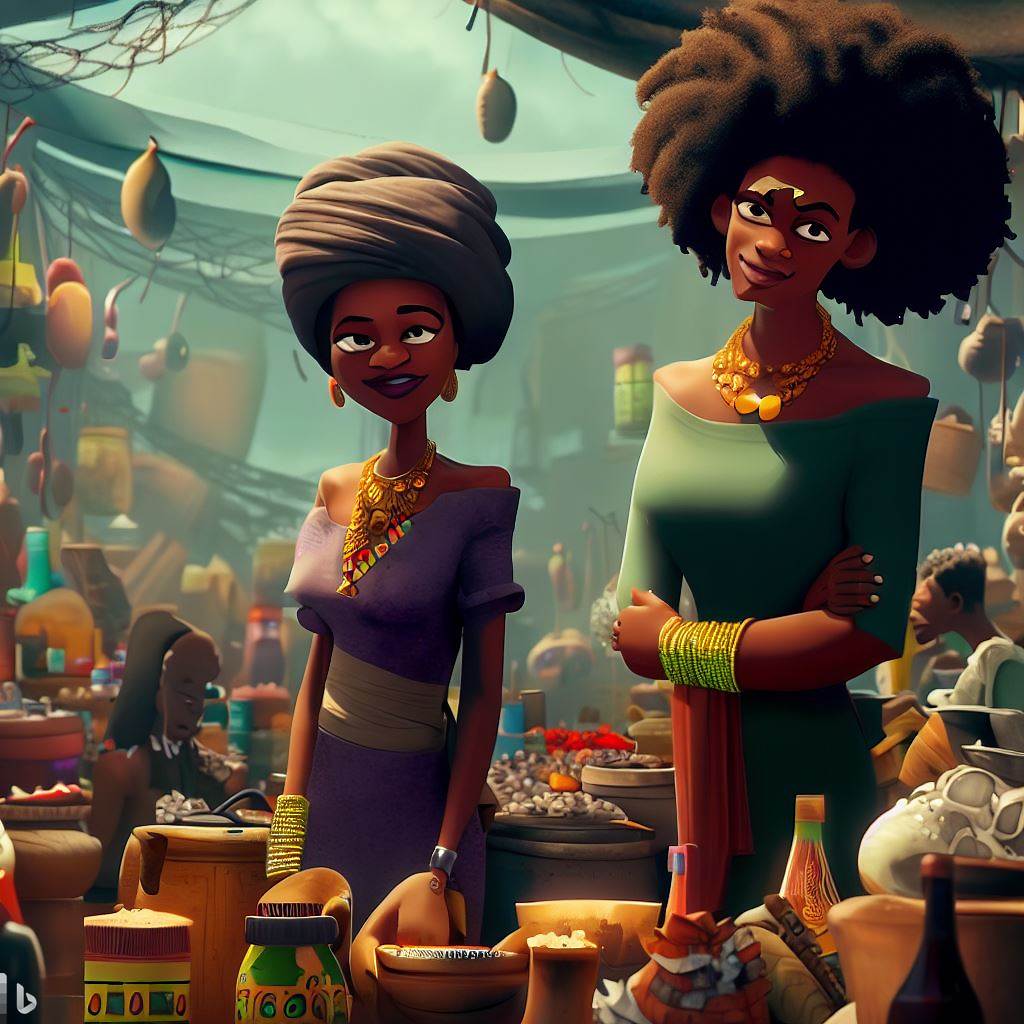
Importance of Authentic Storytelling
Authentic storytelling plays a crucial role in cultural representation within Nigerian animation.
By emphasizing the significance of telling stories that resonate with the Nigerian audience, animation creators are able to connect on a deeper level with viewers.
Resonating with the Nigerian Audience
When storytelling reflects the experiences, values, and traditions of the Nigerian audience, it becomes relatable and captivates their interest.
This emotional connection fosters a stronger bond between the viewer and the animated content.
By creating characters and narratives that reflect the realities and aspirations of Nigerians, animation artists can address pressing issues, spark conversations, and potentially drive social change.
Utilizing Local Myths, Folklore, and Historical Events
One powerful way to achieve authentic storytelling is by incorporating local myths, folklore, and historical events into animated narratives.
These elements bring a sense of cultural heritage and identity to the forefront, captivating the audience and providing opportunities for cultural education.
Utilizing local myths and folklore not only adds depth to the story but also ensures that Nigerian values and beliefs are preserved and celebrated.
It allows Nigerian audiences to see their cultural heritage represented in a modern and engaging format.
In addition, incorporating historical events into animated stories allows for a better understanding of Nigeria’s past, fostering a sense of pride and historical awareness among viewers.
It deepens the connection between the audience and the animation as they witness their history come to life.
Contributing to Cultural Representation
The use of authentic storytelling in Nigerian animation contributes significantly to cultural representation.
By showcasing local customs, languages, and diverse perspectives, animation artists create a platform for the Nigerian audience to see themselves accurately reflected.
Authentic storytelling helps to challenge stereotypes and misconceptions about Nigerian culture, promoting a more nuanced understanding of the country.
It allows for the celebration of diversity and facilitates a sense of belonging and pride among Nigerians.
Furthermore, it creates opportunities for international audiences to learn about Nigerian culture, fostering cross-cultural understanding and appreciation.
Authentic storytelling is of paramount importance in Nigerian animation.
It enables creators to connect with the Nigerian audience on a deeper level by telling stories that resonate with their experiences and values.
By utilizing local myths, folklore, and historical events, animation artists bring cultural heritage to the forefront and provide opportunities for cultural education and celebration.
Ultimately, through authentic storytelling, Nigerian animation contributes to cultural representation, challenges stereotypes, and fosters cross-cultural understanding.
Read: Training and Qualification for Makeup Artists in Nigeria
Influence of Cultural Representation in Shaping Nigerian Animation Industry
Animation is a powerful tool that can shape and influence society. When it comes to Nigerian animation, cultural representation plays a significant role in shaping the industry.
In this section, we will explore the potential economic benefits, global recognition, and export potential, as well as how cultural representation encourages the growth and development of the Nigerian animation industry.
Exploring the Potential Economic Benefits of Cultural Representation in Animation
- Cultural representation in Nigerian animation can lead to increased revenue from both domestic and international audiences.
- By showcasing Nigerian culture, animation studios can attract a larger audience and tap into the untapped potential of the local market.
- Additionally, cultural representation can also attract international collaborations and investments, further boosting the economic prospects of the industry.
- Successful animated films or series with cultural representation can also create merchandising opportunities, contributing to the overall revenue of the industry.
Global Recognition and Export Potential of Nigerian Animations
- Nigerian animations that authentically represent the country’s culture have the potential to gain global recognition.
- The unique stories, characters, and visual styles that reflect Nigerian culture can captivate international audiences.
- Global recognition can open doors for the export of Nigerian animations to various international markets.
- The export potential of Nigerian animations can generate foreign exchange and contribute to the growth of the local animation industry.
Encouraging the Growth and Development of the Nigerian Animation Industry through Cultural Representation
- Emphasizing cultural representation can inspire young Nigerian animators to create content that reflects their heritage and identity.
- The development of a strong identity through cultural representation can differentiate Nigerian animations from generic international content.
- Supporting local talent and providing resources for animators to showcase their culture can attract more investment and foster industry growth.
- Government initiatives, such as funding programs and policy incentives, can encourage the creation of culturally representative animations.
- Collaborations between animation studios, cultural organizations, and educational institutions can further promote the growth and development of the industry.
Generally, cultural representation has a profound impact on the Nigerian animation industry.
By exploring the potential economic benefits, global recognition, and export potential, and encouraging the growth and development of the industry through cultural representation, Nigeria can harness the power of animation to showcase its rich culture and contribute to its economic growth.
Future Opportunities and Recommendations
The potential for growth and expansion in Nigerian animation is immense.
By focusing on various areas, the industry can thrive and make a significant impact on cultural representation.
To tap into this potential, it is crucial to enhance storytelling techniques.
By highlighting Nigerian traditions, folklore, and history, animation can provide narratives that resonate with people of all ages.
Engaging storytelling techniques will attract a wider global audience.
Furthermore, exploring different animation styles and techniques will create a unique visual identity for Nigerian animation.
By showcasing the country’s diverse cultural heritage, animators can captivate viewers with visually stunning content.
Moreover, it is essential to expand animation beyond children’s content. Targeting a broader audience will foster a sense of pride and representation among Nigerians.
This expansion will contribute to the growth of the animation industry and its cultural impact.
Collaboration and partnerships play a crucial role in the development of any creative industry. Nigerian animators should actively seek collaboration with international studios.
This collaboration will allow them to learn from established animation houses, bringing in new skills and techniques to the local industry.
Publish Your Professional Profile, Business or Brand
Showcase your expertise, gain trust, and boost visibility instantly on Professions.ng.
Publish NowAdditionally, partnerships with local content creators will enrich the animation process.
By involving writers, musicians, and designers, Nigerian animations can authentically represent the country’s culture.
These collaborations will further elevate the quality and authenticity of Nigerian animated content.
To support the growth of the animation industry, the government should provide financial assistance. This can be in the form of grants, funding, or tax incentives.
Such support will incentivize animators to create more content and invest in improving their skills and production value.
Moreover, investment in dedicated animation studios and production facilities is vital.
By establishing these resources, animators will have the necessary infrastructure to produce high-quality content consistently.
Lastly, comprehensive infrastructure should be developed to enhance distribution and exhibition.
This can include the creation of online platforms and partnerships with existing streaming services.
Such infrastructure will ensure that Nigerian animations reach a larger audience, both locally and globally.
In general, the future of Nigerian animation is promising. By identifying potential areas of growth, fostering collaboration, and receiving government support, the industry can flourish.
This growth will not only provide economic opportunities but also promote cultural representation on a global scale.
Conclusion
The importance of cultural representation in Nigerian animation cannot be overstated.
It is an essential aspect that not only enhances the authenticity of the industry but also promotes diversity and inclusivity.
By showcasing Nigerian culture and traditions through animation, the industry has the power to educate, inspire, and entertain both local and global audiences.
It serves as a platform for preserving and celebrating Nigeria’s rich heritage.
There is still much room for further exploration and celebration of Nigerian culture in the animation industry.
As the industry continues to grow and evolve, it is crucial for creators to embrace and incorporate more cultural elements into their work.
The future of cultural representation in Nigerian animation looks promising.
With the increasing popularity of Nigerian animated content and the growing demand for diverse narratives, there is a great opportunity to elevate and promote Nigerian culture on a global scale.
In summary, cultural representation in Nigerian animation is not just a trend but a necessary journey towards cultural preservation, appreciation, and understanding.
It is a step towards fostering national pride, unity, and a means to promote Nigeria’s rich cultural identity to the world.

